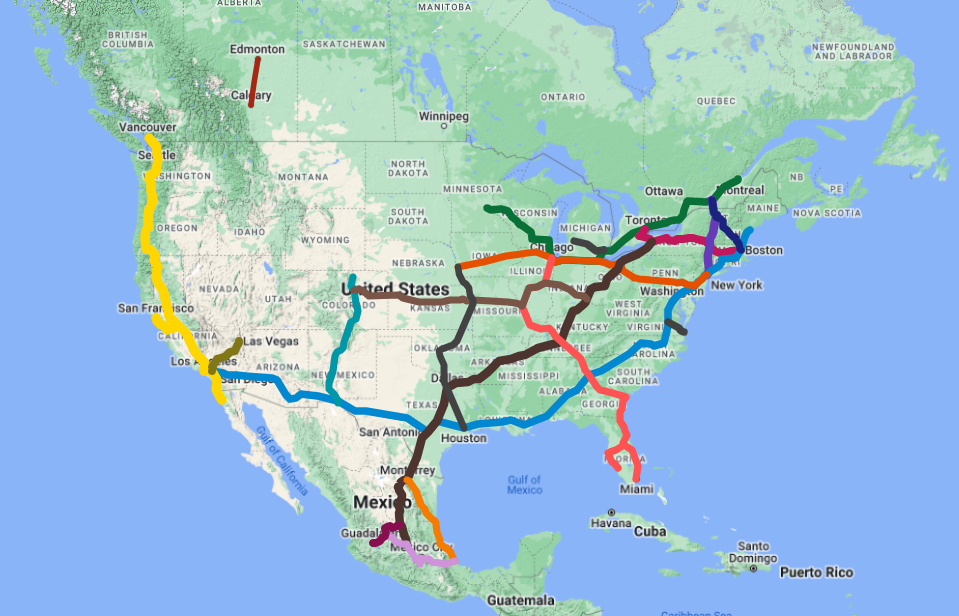Fuck Cars
A place to discuss problems of car centric infrastructure or how it hurts us all. Let's explore the bad world of Cars!
Rules
1. Be Civil
You may not agree on ideas, but please do not be needlessly rude or insulting to other people in this community.
2. No hate speech
Don't discriminate or disparage people on the basis of sex, gender, race, ethnicity, nationality, religion, or sexuality.
3. Don't harass people
Don't follow people you disagree with into multiple threads or into PMs to insult, disparage, or otherwise attack them. And certainly don't doxx any non-public figures.
4. Stay on topic
This community is about cars, their externalities in society, car-dependency, and solutions to these.
5. No reposts
Do not repost content that has already been posted in this community.
Moderator discretion will be used to judge reports with regard to the above rules.
Posting Guidelines
In the absence of a flair system on lemmy yet, let’s try to make it easier to scan through posts by type in here by using tags:
- [meta] for discussions/suggestions about this community itself
- [article] for news articles
- [blog] for any blog-style content
- [video] for video resources
- [academic] for academic studies and sources
- [discussion] for text post questions, rants, and/or discussions
- [meme] for memes
- [image] for any non-meme images
- [misc] for anything that doesn’t fall cleanly into any of the other categories
Recommended communities:
view the rest of the comments

About 4500 km on current roads, that's at least in the right ballpark for rail. The currently highest-rated rail route is in China, 350km/h, that's 12.8 hours. Canada is currently building to that spec. TGVs can go 574.8 km/h (yes, on steel), that'd be 7.8 hours... 10 hours would be a mere 450km/h, I think that's perfectly doable in ordinary service, on steel, if you have the will. A bit faster than a Bugatti Veyron why is that so hard to believe steel has quite some advantages over rubber on asphalt.
That assumes the train is traveling at its maximum speed for the entire duration of the trip-- which is almost never the case, even in China. For a route that long with many many stops large portions running over rough terrain necessitating curves and grade changes the actual average speed along the route would certainly mean the average speed of the route would be much slower.
Ultimately, spending a tremendous amount of money embarking on an ultra-high speed rail route between the coasts-- which would certainly be one of the most ambitious infrastructure projects in human history-- would be a waste of time and money compared to almost any other rail project. All that money would be much better spent on high speed rail where it actually makes sense, and on conventional rail connecting every city in the US.
Night trains don't tend to have many stops, less than ordinary HSR ones. And really all that empty space in the US should lead to the average speed being quite a bit higher compared to maximum when compared to Europe. But, all that said, don't nail me on the details. Even if it's a 16 hour trip, there'd still be plenty of people who would be interested.
And then, well, LA-Huston and NY-Huston make sense independently so the track is already there.
Bombardier Talent 3's are technically HSR, given that they max out at 200km/h. Tracks and rolling stock supporting on the order of 150km/h aren't a rarity for S-Bahn systems, here, that's more like commuter rail. Meanwhile, Amtrak is running trains over vast sections at more like 50km/h because the track is so shoddy you can't go any faster. (That's a sensible average speed for subway systems...) Those vast sections have to be rebuilt, anyway, and while you're at it you can just as well build them to higher standards as the cost increase is almost negligible compared to what building non-shoddy track costs.